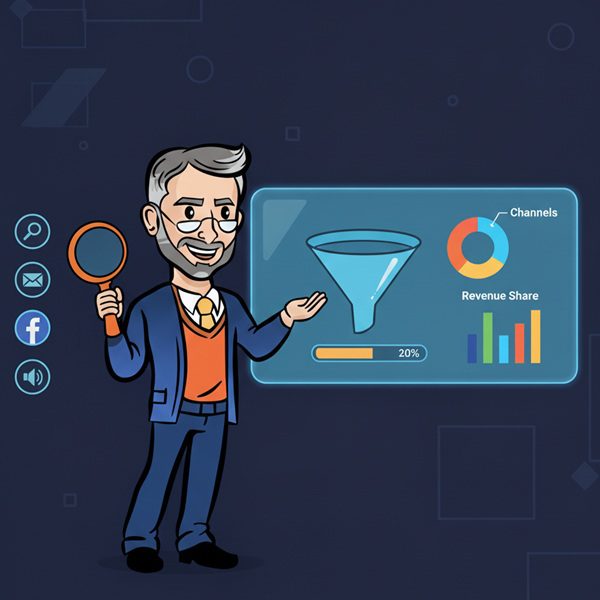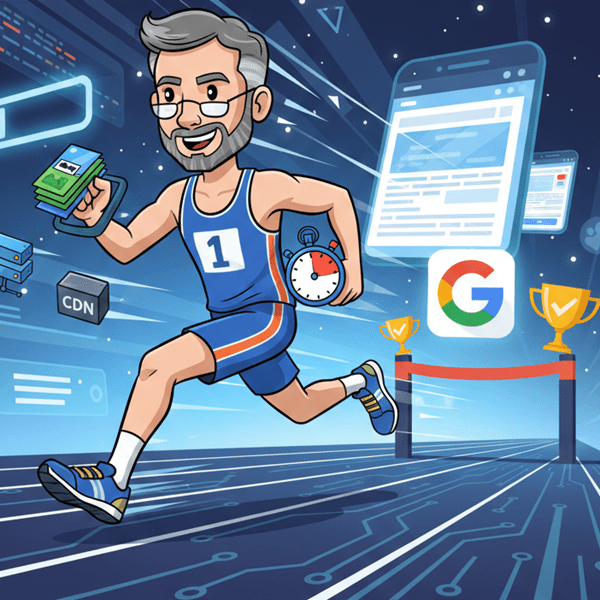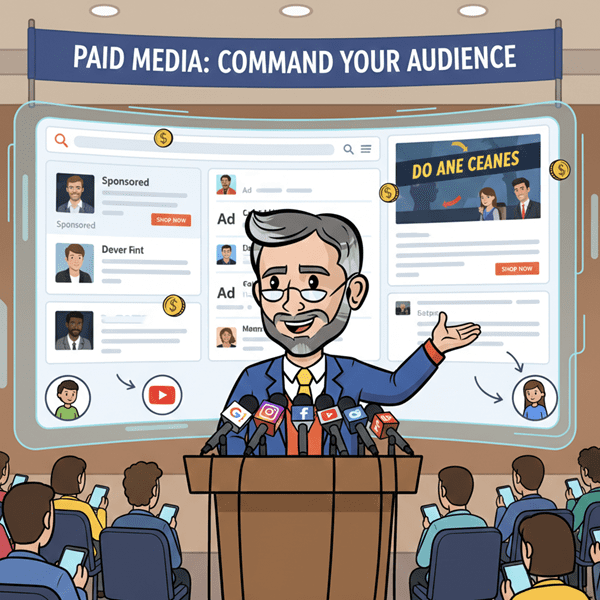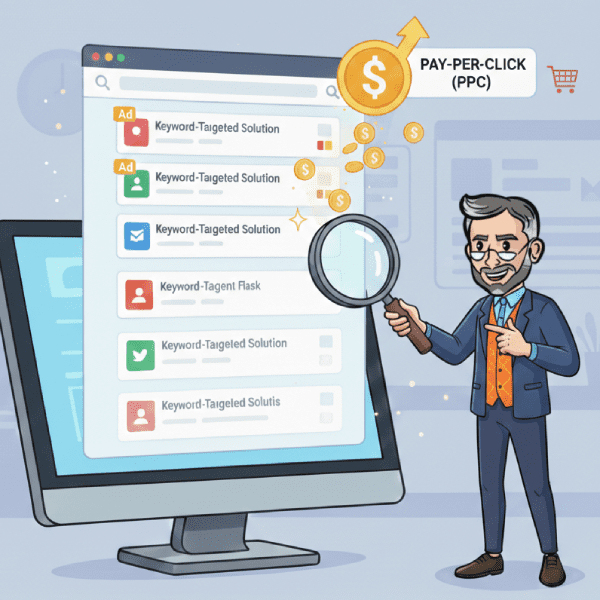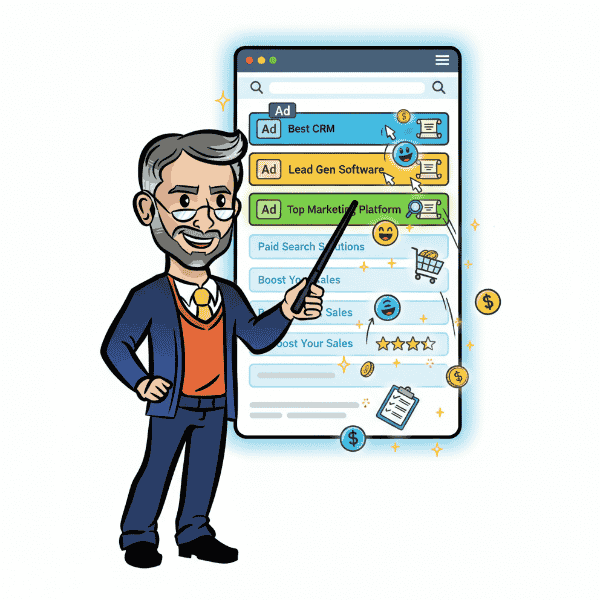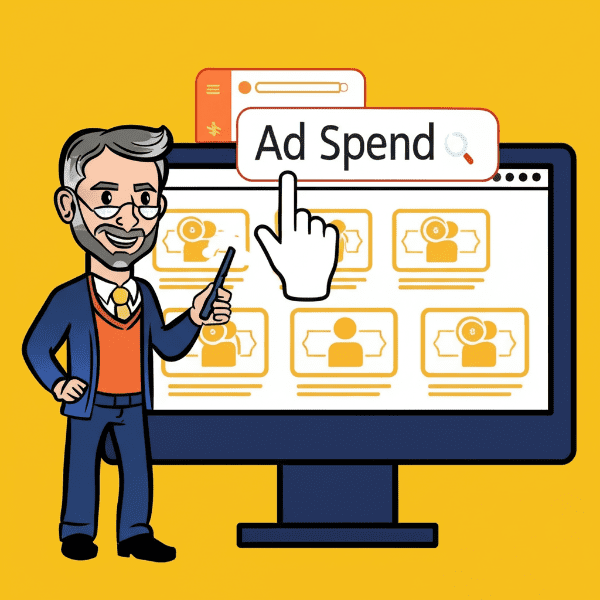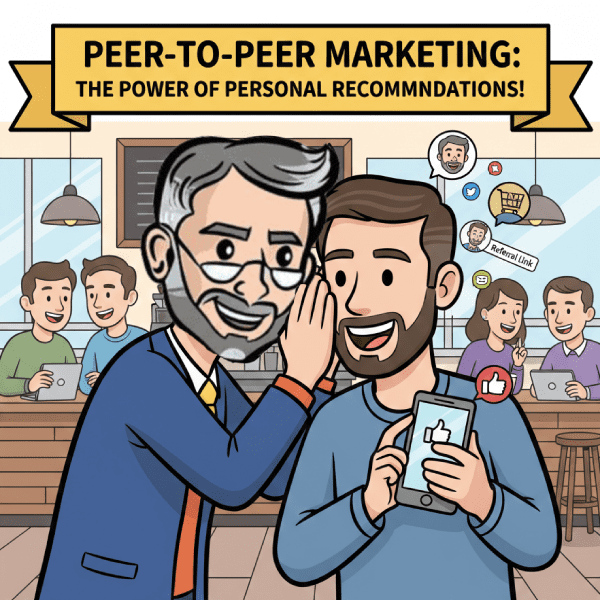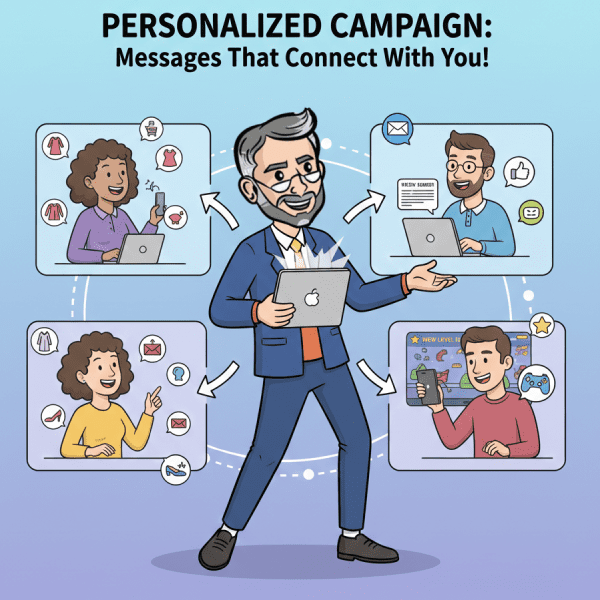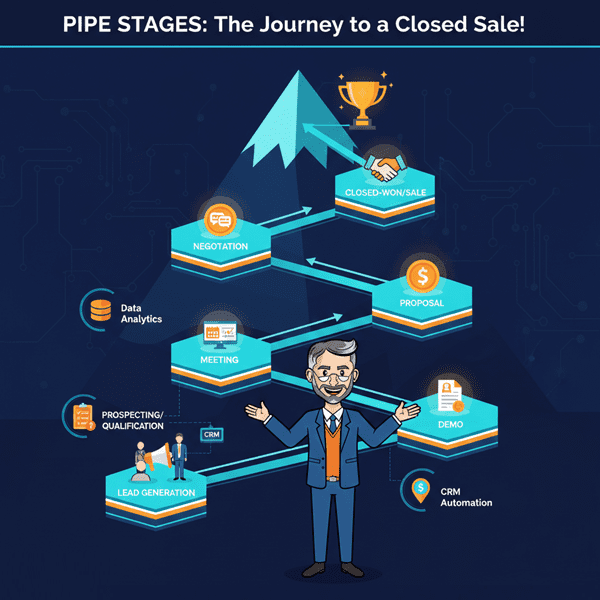Definition: A personal branding strategy is a deliberate plan for shaping how you present yourself and your expertise to the world. It involves defining your unique value, refining your messaging, and consistently showing up across platforms—such as LinkedIn, blogs, podcasts, or speaking engagements—to build credibility, trust, and influence.
Use it in a Sentence: The consultant developed a personal branding strategy to highlight her thought leadership on LinkedIn, attracting new clients and speaking opportunities.
Benefits of an Effective Personal Branding Strategy
- Increased Visibility: A well-crafted strategy helps you show up in the right places—whether that’s search engines, social feeds, or speaking events—so your ideal audience can find you.

- Stronger Credibility: By consistently sharing your perspective, results, and values, you become a trusted voice in your space. This builds authority and fosters deeper engagement. Tools like Go High Level can help automate and schedule this content sharing for better consistency and reach.
- Attracting Aligned Opportunities: The clearer your brand, the more likely you are to attract clients, employers, or collaborators who align with your vision and values.
- Clarity of Message: A personal branding strategy forces you to define your niche, your value proposition, and how you want to be perceived—all essential for professional growth. This clarity becomes even more powerful when backed by platforms like HubSpot, which help track interactions and engagement across channels.
- Long-Term Career Leverage: As your personal brand grows, so does your influence. This can lead to media coverage, partnerships, and new revenue streams over time. To maximize this, maintaining strong CRM hygiene ensures that every new contact and connection is tracked accurately for future outreach and opportunity.
Key Elements of a Strong Personal Branding Strategy
- Brand Positioning: Define who you are, what you do, who you serve, and what makes you different. This clarity lays the foundation for your entire personal brand.
- Visual Identity: From profile pictures to color palettes, visual consistency helps make your brand memorable across platforms.
- Content Strategy: Regularly share content that reflects your expertise, values, and personality. This could be thought leadership posts, behind-the-scenes insights, or case studies.
- Platform Focus: Choose the channels where your audience already spends time—LinkedIn, Instagram, YouTube—and tailor your message for each one.
- Authentic Storytelling: Share real stories and experiences that highlight your journey. Authenticity builds emotional connection and separates you from generic industry voices.
- Audience Engagement: Your personal branding strategy isn’t just about broadcasting—it’s about connection. Engage in conversations, respond to comments, and nurture relationships.
- Consistency Over Time: Personal branding is a long game. Show up consistently with your message, and over time, you’ll build a reputation that works for you—even when you’re not in the room.
More Definitions
(From the Sales & Marketing Jargon Encyclopedia)
- Qualified Lead: A prospect who meets certain criteria and demonstrates intent or potential to become a customer.
Read More> - Link Juice: The SEO value or authority passed through hyperlinks to boost search rankings.
Read More> - One and Done: A sales or marketing approach that lacks follow-up or nurturing—often ineffective.
Read More>
- Scheduler: A scheduler automates appointment booking, reducing back-and-forth and saving time for teams and clients.
Read More>
- Salesforce: Salesforce is a leading CRM solution used to manage leads, automate workflows, and boost sales.
Read More>
Useful Posts
(From the Sales Funnel Professor Blog)
- Top of Funnel: Organic Social Strategies: Learn how to build brand awareness using unpaid social media content and outreach.
Read More> - SEO Top of Funnel Strategies: Dive into organic tactics that increase visibility at the awareness stage without a paid budget.
Read More> - How to Find Low-Hanging Fruit in Sales & Marketing: Discover practical ways to identify quick wins and easy-to-implement strategies that don’t require a big spend.
Read More>
- ClickFunnels vs HubSpot: ClickFunnels focuses on building sales funnels, while HubSpot offers a full CRM and marketing suite. Read more>


